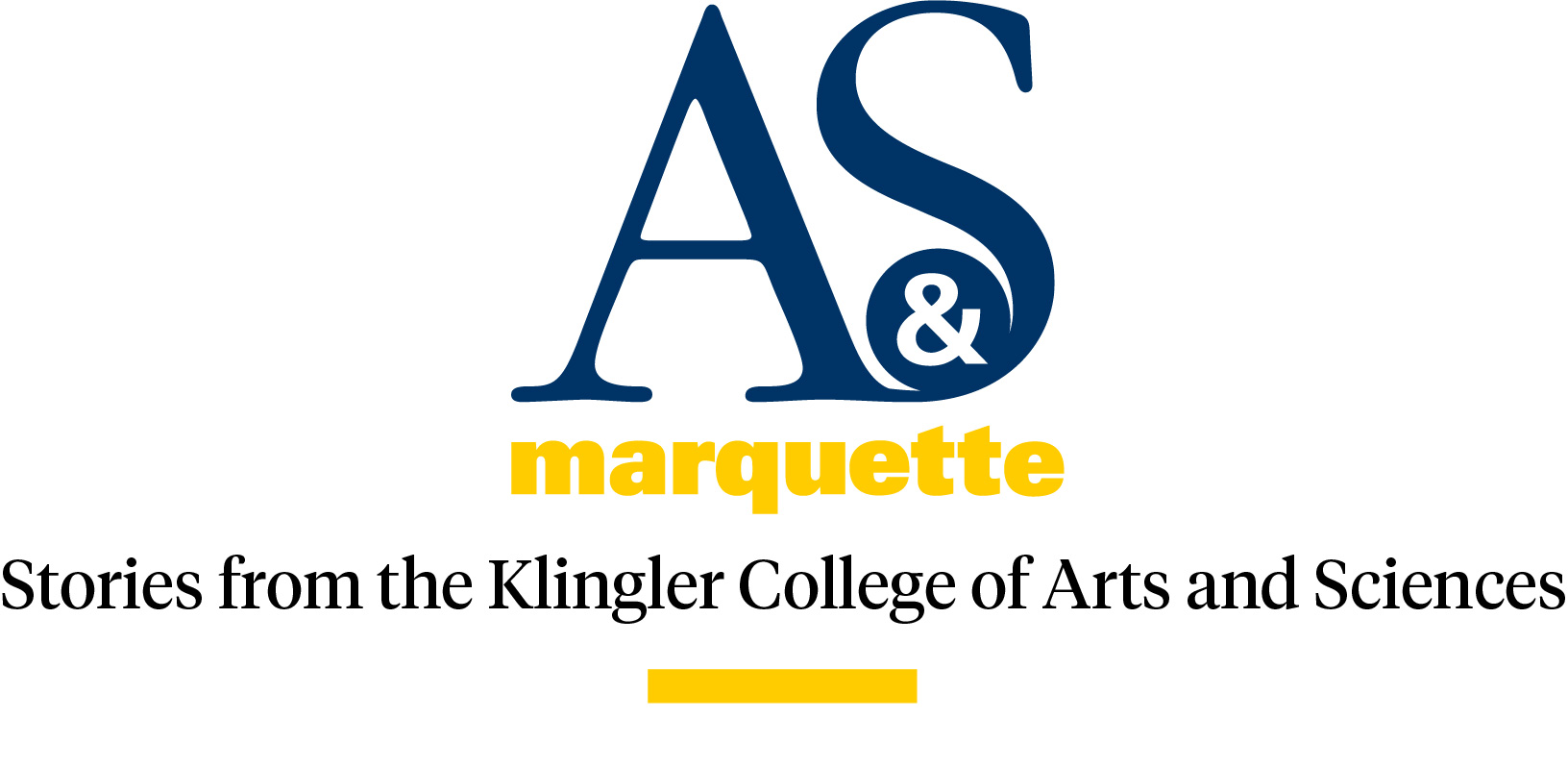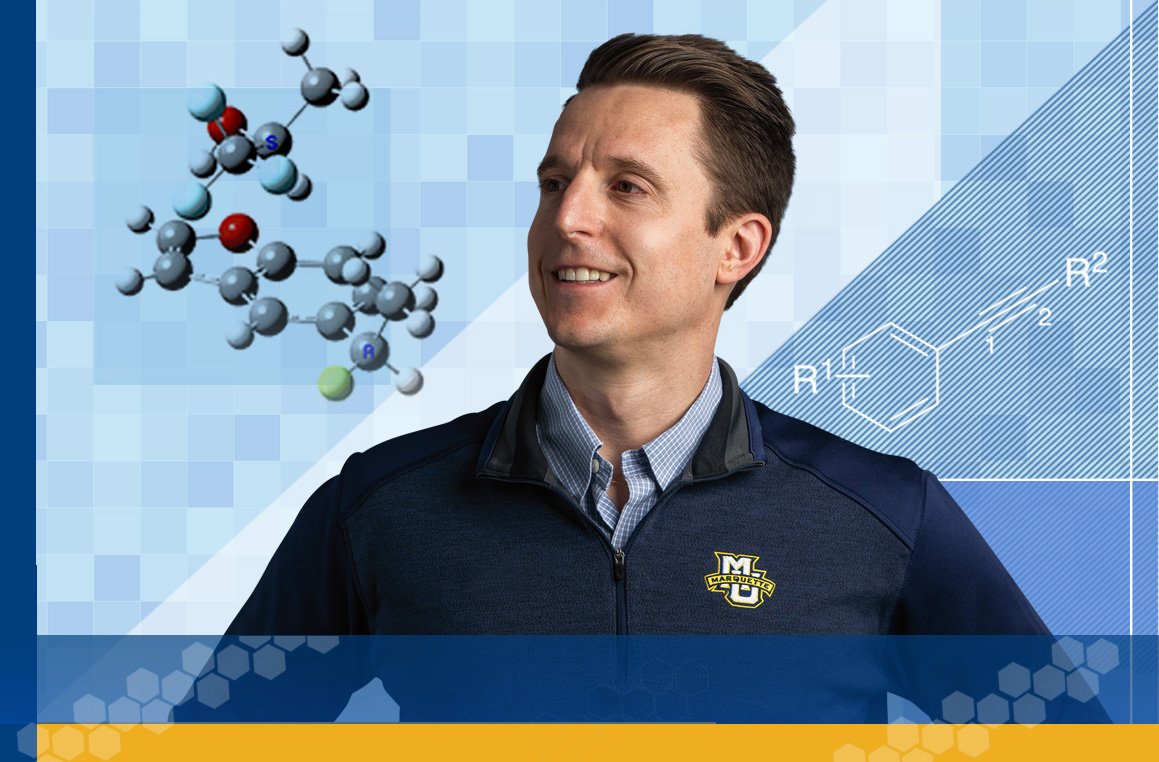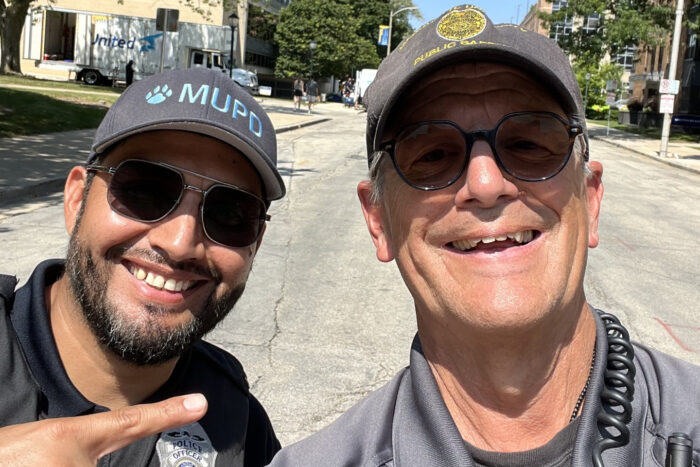With a new CAREER Award, Dr. Joseph Clark is pursuing solutions to a shortage of carbon-14 used in making drugs traceable in the body, while providing training opportunities for scientists from hurricane-damaged Puerto Rico.
Just months after Hurricane Maria devastated Puerto Rico in 2017, Dr. Joseph Clark, assistant professor of chemistry in the Klingler College of Arts and Sciences, was there among the destruction. The hurricane had wreaked havoc on the island’s infrastructure, including its academic and research centers. Clark wondered what he, as a researcher, could do. “There’s so many talented students there, but they lost precious lab resources that are crucial for their success,” he says.
When he was a graduate student, Clark had worked with several University of Puerto Rico-Cayey students who had come to the U.S. mainland to receive research training under his supervisor’s guidance. “Those students were some of the best scientists I’ve ever interacted with,” Clark says. He has continued in his mentor’s footsteps, providing research opportunities for Puerto Rican students at Marquette. A few have even braved the cold Wisconsin winters to join Clark’s lab as graduate students.
Now, the National Science Foundation has awarded Clark a CAREER Award grant, the organization’s most prestigious award to support early-career faculty. The $650,000 grant will support five years of research to develop new chemical reactions for integrating isotopic forms of hydrogen into small-molecule drugs. Because the isotopes make the small molecules traceable as they move through the body, Clark’s project has strong potential as a solution to a serious shortage of the isotope currently preferred for drug tracking purposes, carbon-14. The grant will also bolster Clark’s efforts to train the next generation of scientists, including those from groups traditionally underrepresented in science.
Using tritium in new drug development allows researchers to track the fate of a molecule through the body, a necessary step of the medication approval process. The research aims to ease a national crisis.
With support from the CAREER Award, Clark plans to offer summer research internships and establish an annual career workshop at the University of Puerto Rico-Cayey. Together, the workshop and research experiences are designed to set up students for successful careers in science, technology, engineering and mathematics (STEM) fields.
This fall, three graduate-student research associates in Dr. Clark’s laboratory — Aniel Rivera Arzola, Emmanuel Rivera Torres and Gabriel Garcia-Padin — will present their research at UPR-Cayey as part of a joint workshop with Marquette. The scientists were undergraduates in Puerto Rico when they began their professional research careers as summer research interns in Clark’s laboratory and later enrolled at Marquette as graduate students. “It was one of the best decisions I’ve made,” says Garcia-Padin. “I don’t know where else I would be if I weren’t here doing this research.”
The CAREER Award comes to Clark on top of a five-year, $1.8 million Maximizing Investigators’ Research Award from the National Institutes of Health that he received last July for another arm of his research. It is unusual, and difficult, for a researcher to receive both grants.
Research supported by the CAREER Award will allow Clark and his research team to develop new chemical reactions to precisely incorporate a version of hydrogen known as tritium into small-molecule drug candidates. Tritium is a radioactive isotope of hydrogen that contains two neutrons and one proton. Using tritium in new drug development allows researchers to track the fate of a molecule through the body, a necessary step of the medication approval process.
The research aims to ease a national crisis. The gold-standard label for tracking a drug through the body is a carbon isotope known as carbon-14, or 14C. It is by far the most popular and reliable choice for this kind of tracking. “But there’s a huge problem,” says Clark. “14C is produced at one facility in the whole world, in Russia. With the ongoing war, the supply of 14C is running out.”
Using tritium to label small molecules is the only gold-standard alternative for drug tracing. Facilities in the U.S. produce tritium and it is cheaper than 14C. But more work needs to be done before it can be deployed as reliably as 14C.
The crisis was somewhat of a eureka moment for Clark. “When I saw this, I thought, ‘Wait a second, we know how to put [a different hydrogen isotope] in a molecule very selectively, what if we can control and apply those methods to tritium,’ ” Clark says.
For nearly five years, Clark and his research group have been perfecting techniques to precisely incorporate another isotope of hydrogen called deuterium into small molecules. The naturally occurring hydrogen isotope harbors one additional neutron compared with hydrogen. Deuterated drug candidates can be safer than drugs made with typical hydrogen and not cause as many side effects. Clark will draw on this expertise to advance researchers’ understanding of how to precisely incorporate tritium into small molecules.
The research methods and techniques Clark is developing are distinctive. He has entertained the thought of starting a company around these ideas. But first his plan is to continue growing his lab, to train more students and to see them flourish.
“The students who join my group get unique training in synthetic organic isotope chemistry that you can’t really find in too many other groups in the U.S.,” he says. “I get to offer them this experience and know that later on this will transform how medicine is developed and potentially have a major effect on human health in a positive way.”
Indeed, the research and experience that Rivera Torres has gained in Clark’s laboratory has brought about an opportunity that he “never saw in [his] wildest dreams.” Beginning in January, Rivera Torres will spend up to nine months in collaboration with pharmaceutical company AstraZeneca at its headquarters in Gothenburg, Sweden, on the tritium labeling projects funded by the CAREER grant.




